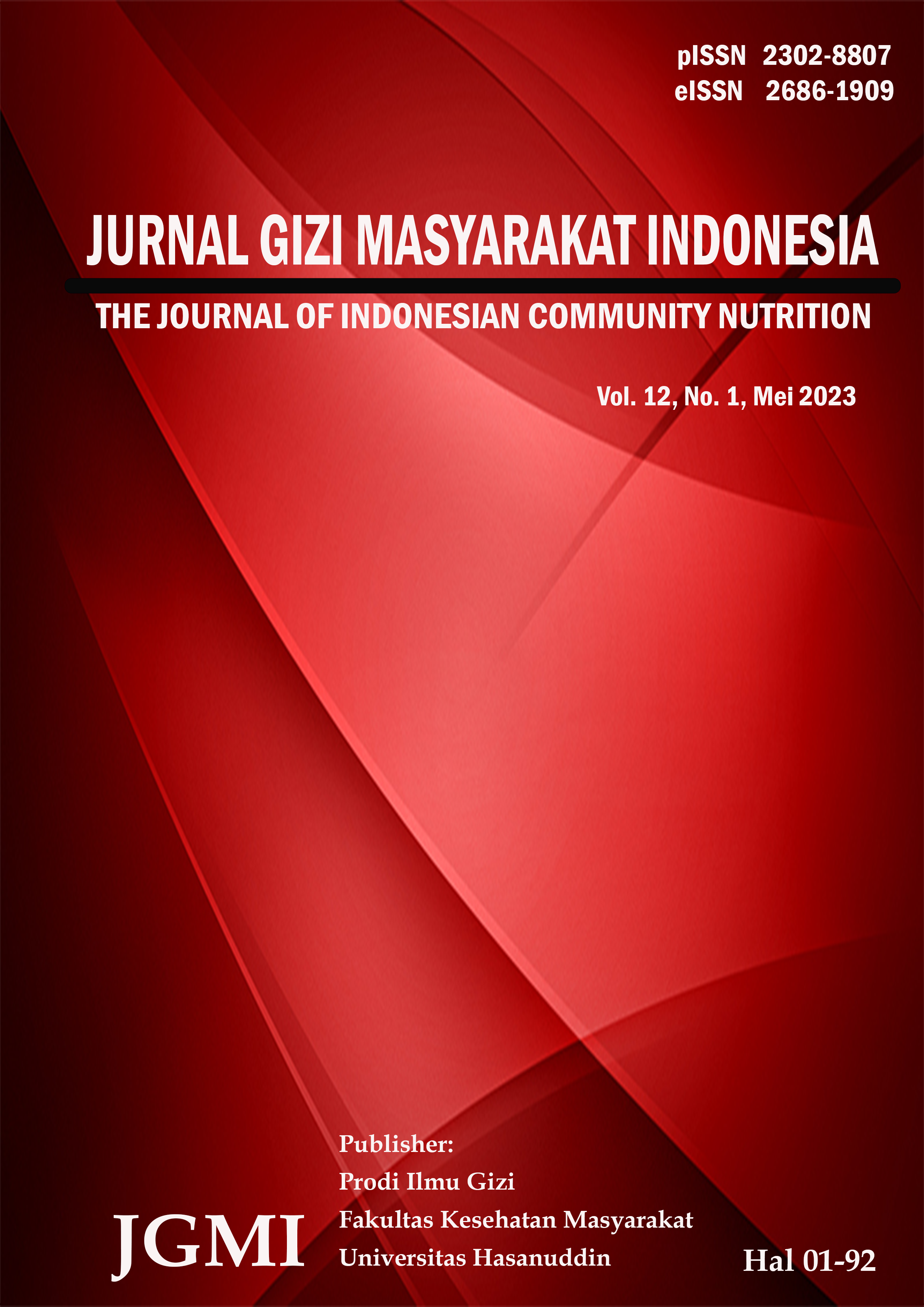THE RELATIONSHIP OF LIFESTYLE WITH BLOOD GLUCOSE IN OBESITY EMPLOYEES AT HASANUDDIN UNIVERSITY
DOI:
https://doi.org/10.30597/jgmi.v12i1.24034Abstract
Introduction: Obesity is associated with an increase in blood sugar levels which is one component of the metabolic syndrome. In addition to obesity, increased blood sugar levels are also influenced by lifestyle. Aim: This study aims to determine the relationship between lifestyle (diet and physical activity) with blood glucose levels in obese employees at Hasanuddin University. Materials and Methods: The type of research used is analytic observational with a cross sectional design. This research was conducted on 104 obese employees at Hasanuddin University with a sampling technique that is purvosive sampling. Data collection techniques used anthropometric measurements and measurements of blood glucose levels, as well as interviews using the FFQ questionnaire to measure diet and IPAQ to measure physical activity. Analysis using SPSS program with Chi-Square test. Presentation of data in the form of tables and narration. Results: The results of the analysis for the relationship between diet and blood glucose levels obtained p value = 0.000 (p <0.05). The most consumed complex carbohydrate food source is rice, and the most consumed simple carbohydrate source is packaged coffee/tea. The test results for the relationship between physical activity and blood glucose levels obtained p value = 0.054 (p>0.05). Conclusion: There is a significant relationship between diet and blood glucose levels in obese employees and there is no significant relationship between physical activity and blood glucose levels in obese employees. It is necessary to control the diet and do a lot of physical activity such as exercising during holidays.
Downloads
Published
How to Cite
Issue
Section
License

This work is licensed under a Creative Commons Attribution-NonCommercial-ShareAlike 4.0 International License.




